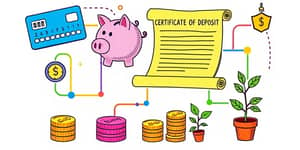In today’s shifting financial landscape, understanding how loan interest works can transform your money story and unlock new possibilities. When you take out a loan, you choose more than just a sum of money—you choose a path that can shape your future.
Deciding between a fixed rate and a variable rate loan can feel like navigating a crossroads in your financial journey, but with clear insights, you can steer toward confidence and clarity.
Understanding the Fundamentals
A fixed rate loan offers predictable payments by locking in the same interest rate for the life of your loan. This means your monthly bill remains unchanged, allowing you to plan every dollar of your budget without worrying about market ups and downs.
In contrast, a variable rate loan adapts to market shifts. Its interest rate fluctuates based on benchmarks like the federal funds rate or SOFR, causing your payments to rise or fall as economic conditions evolve.
Common Loan Types
Both loan structures serve different purposes. Choosing the right one begins with knowing the options.
- Auto loans
- Home equity loans
- Personal loans
- Fixed-rate mortgages
Meanwhile, variable rate loans often include:
- Adjustable-rate mortgages (ARMs)
- Credit cards
- Home equity lines of credit (HELOCs)
- Variable rate personal loans
Key Comparison at a Glance
Below is a concise overview highlighting the core differences between fixed and variable rate loans.
Weighing the Pros and Cons
Fixed rate loans are renowned for providing financial peace of mind. When you know exactly what you owe each month, you can allocate funds to savings, investments, or dreams with certainty.
Despite their strengths, fixed loans come with trade-offs. The initial rate may be higher than variable options, which could mean paying more interest overall if market rates stay low.
Variable rate loans shine when market rates decline, offering potential savings over time. Your payment can decrease alongside drops in benchmark rates, freeing up cash for other goals.
However, they carry inherent risks: an unexpected payment spike can strain your budget if interest rates climb faster than anticipated. This uncertainty demands careful planning and a strong risk tolerance.
Factors to Consider When Choosing
Selecting the right loan type hinges on a blend of personal preference and economic context.
- Your risk tolerance and comfort with fluctuating costs
- The anticipated length of your loan term
- Current interest rate trends and economic forecasts
- Your long-term financial objectives
Real-Life Scenarios and Practical Tips
Consider Sara, a recent graduate who chose a fixed rate personal loan to fund her startup venture. By locking in a steady payment, Sara planned her monthly budget confidently, focusing on innovation and growth rather than rate volatility.
Conversely, Jamal, a seasoned real estate investor, embraced a variable rate mortgage for his rental property portfolio. With keen attention to economic indicators, he timed rate dips to refinance strategically, saving thousands in interest and scaling his investments.
For both borrowers, success came from matching loan choice to personal strategy: predictable stability for the entrepreneur, opportunistic flexibility for the investor.
Making the Decision Yours
Ultimately, the choice between fixed and variable rates reflects your financial journey and aspirations. Whether you seek steady and consistent monthly budgeting or are willing to ride market waves for possible gains, understanding these options empowers you to shape your future.
Take time to run numbers, consult with a trusted advisor, and envision how each rate structure aligns with your goals. Armed with knowledge and intentional planning, you can transform this critical decision into a stepping stone toward lasting financial wellness and peace of mind.
References
- https://www.mefa.org/article/what-is-the-difference-between-fixed-and-variable-interest-rates/
- https://www.iowastudentloan.org/articles/college/fixed-or-variable-interest-rate.aspx
- https://www.citi.com/personal-loans/learning-center/basics/fixed-vs-variable-rate-loans
- https://www.synchrony.com/blog/bank/fixed-vs-variable-rates
- https://oportun.com/financial-education/fixed-vs-variable-interest-rates-whats-the-difference/
- https://www.investopedia.com/ask/answers/07/fixed-variable.asp
- https://www.quickenloans.com/learn/fixed-rate-vs-variable-rate
- https://www.jeniusbank.com/blog/articles/fixed-vs-variable-rate










